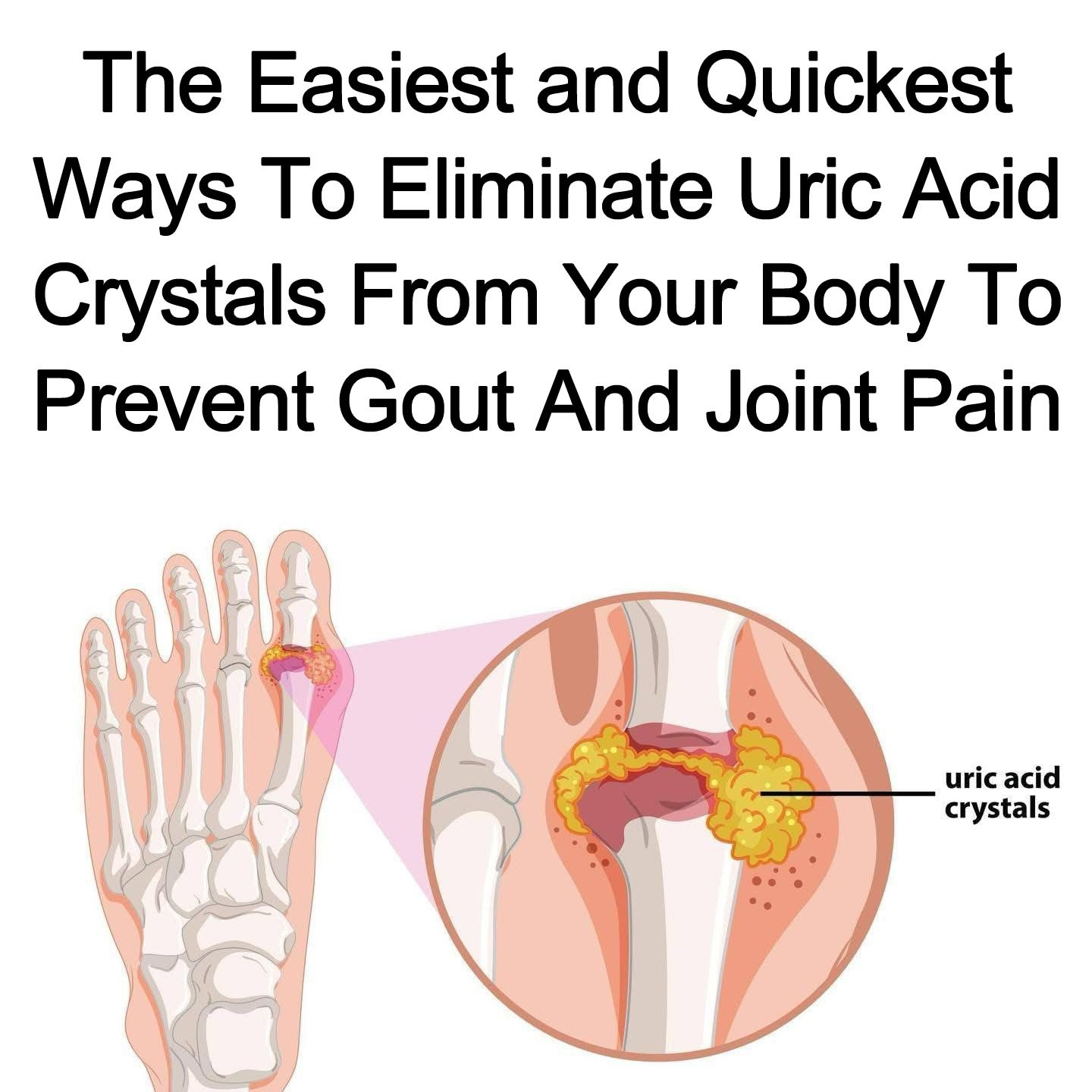You should know this

Uric acid is a natural waste product formed when your body breaks down purines, which are found in certain foods and drinks. Normally, uric acid dissolves in the blood, passes through the kidneys, and is excreted in urine. But when levels get too high, it can form sharp crystals in joints — leading to gout, a painful form of arthritis.
If you’re dealing with gout, or want to prevent joint pain caused by uric acid buildup, here are the most effective and simple ways to flush out uric acid naturally:
🥤 1. Drink Plenty of Water
- Why it helps: Water dilutes uric acid and helps the kidneys flush it out through urine.
- Tip: Aim for 8–12 glasses per day, or more if you’re active or live in a hot climate.
- Adding lemon juice can be even more effective, as lemon is slightly alkaline and may reduce uric acid levels.
🥦 2. Eat Low-Purine Foods
- Avoid or limit: Red meat, organ meats (like liver), shellfish, anchovies, sardines, and high-fructose corn syrup.
- Enjoy more: Vegetables (especially leafy greens), low-fat dairy, whole grains, and fruits (especially cherries and berries which help lower uric acid).
🍒 3. Eat Cherries or Cherry Juice
- Why it helps: Cherries contain antioxidants and anti-inflammatory compounds that reduce uric acid and gout attacks.
- Studies show that consuming cherries regularly can reduce the risk of flare-ups by up to 35%.
☕ 4. Limit Alcohol and Sugary Drinks
- Alcohol, especially beer and spirits, is high in purines and can hinder uric acid removal.
- Sugary drinks, particularly those with high-fructose corn syrup, increase uric acid production.
🧘♂️ 5. Maintain a Healthy Weight
- Excess body weight reduces your kidneys’ ability to eliminate uric acid efficiently.
- Losing weight can lower uric acid levels and decrease the frequency of gout attacks — but avoid crash diets, which may worsen uric acid temporarily.
🍋 6. Use Natural Remedies
- Apple Cider Vinegar: A tablespoon in water daily may help alkalize the body and support uric acid elimination.
- Baking Soda (Sodium Bicarbonate): In small amounts (consult a doctor first), it can help neutralize acidity and support kidney function.
🥗 7. Avoid Processed Foods
- Highly processed foods often contain hidden sugars, trans fats, and additives that increase inflammation and uric acid levels.
- Stick to whole foods as much as possible.
🩺 8. Take Uric Acid–Friendly Supplements (If Needed)
- Vitamin C: Helps reduce uric acid in the blood.
- Magnesium: Low magnesium levels have been linked to gout.
- Quercetin: A natural anti-inflammatory found in onions and apples, sometimes used in supplement form to support joint health.
🔄 9. Get Regular Exercise
- Exercise improves circulation and supports kidney function, helping the body detox more efficiently.
- Gentle activities like walking, swimming, and yoga are especially helpful.
10. Check Your Blood Uric Acid Levels
- Regular testing can help you monitor your progress and make diet/lifestyle adjustments early — before a painful gout attack occurs.
If you already have gout symptoms or kidney issues, always talk to a healthcare provider before starting supplements or drastic diet changes.